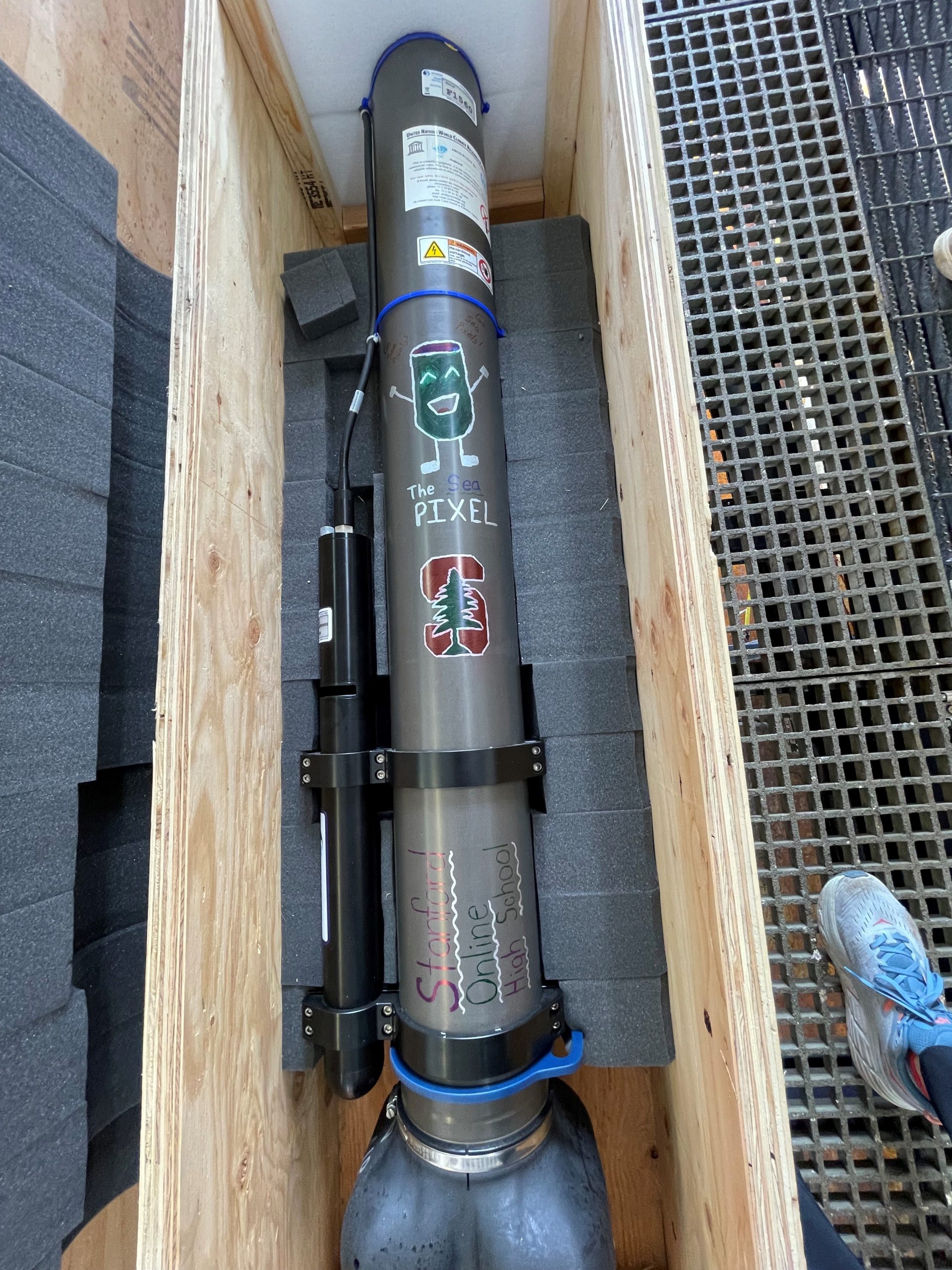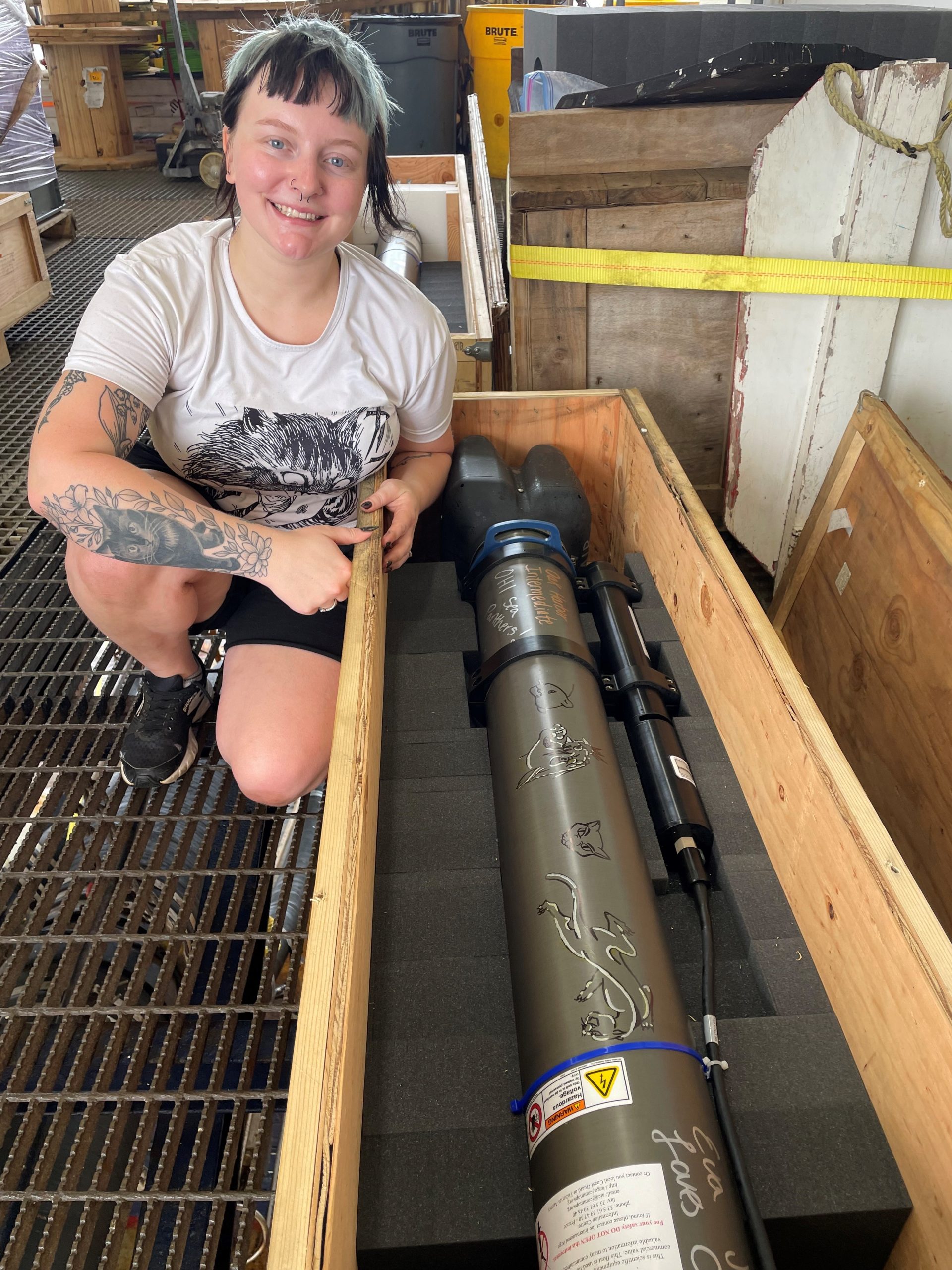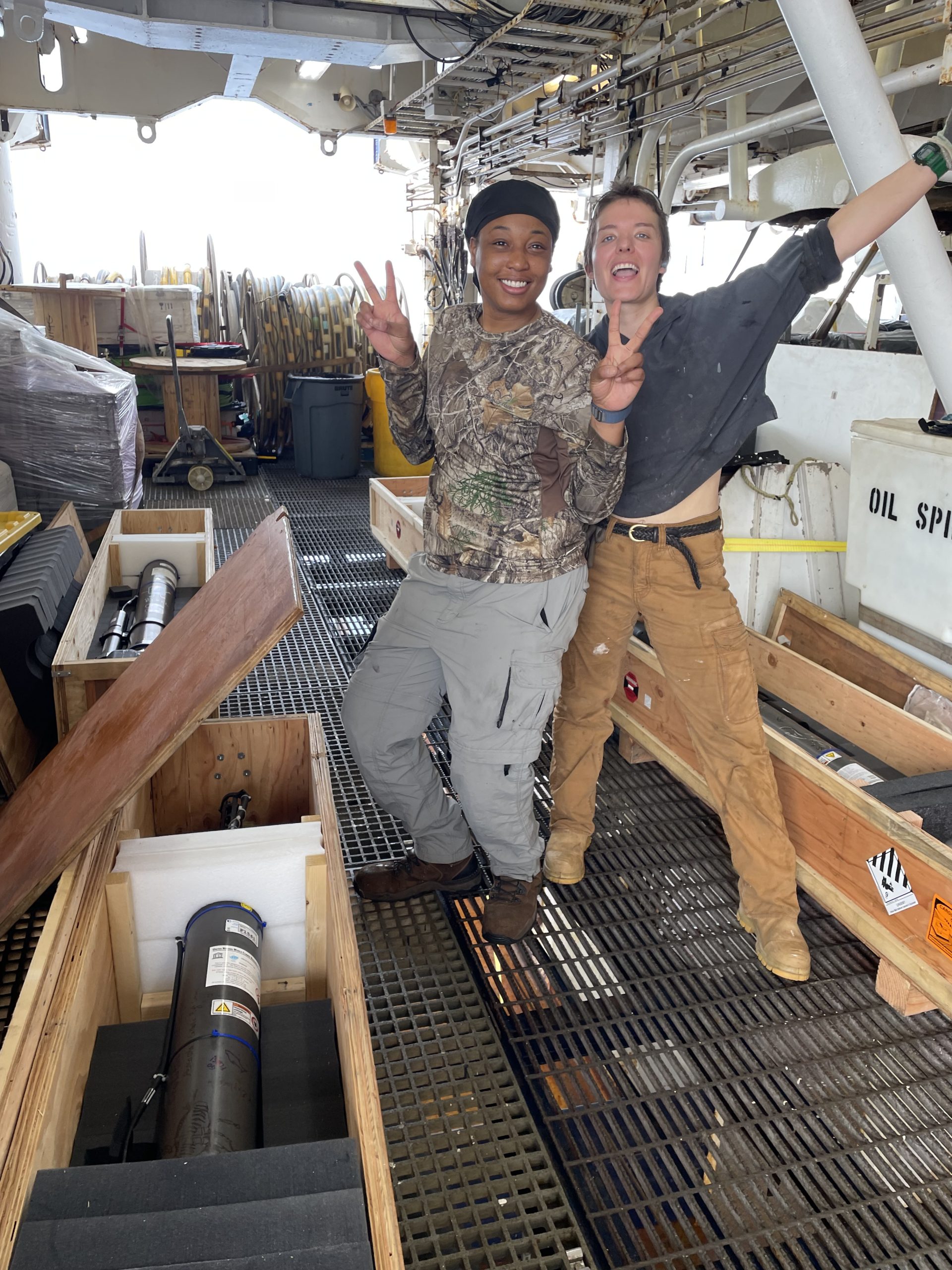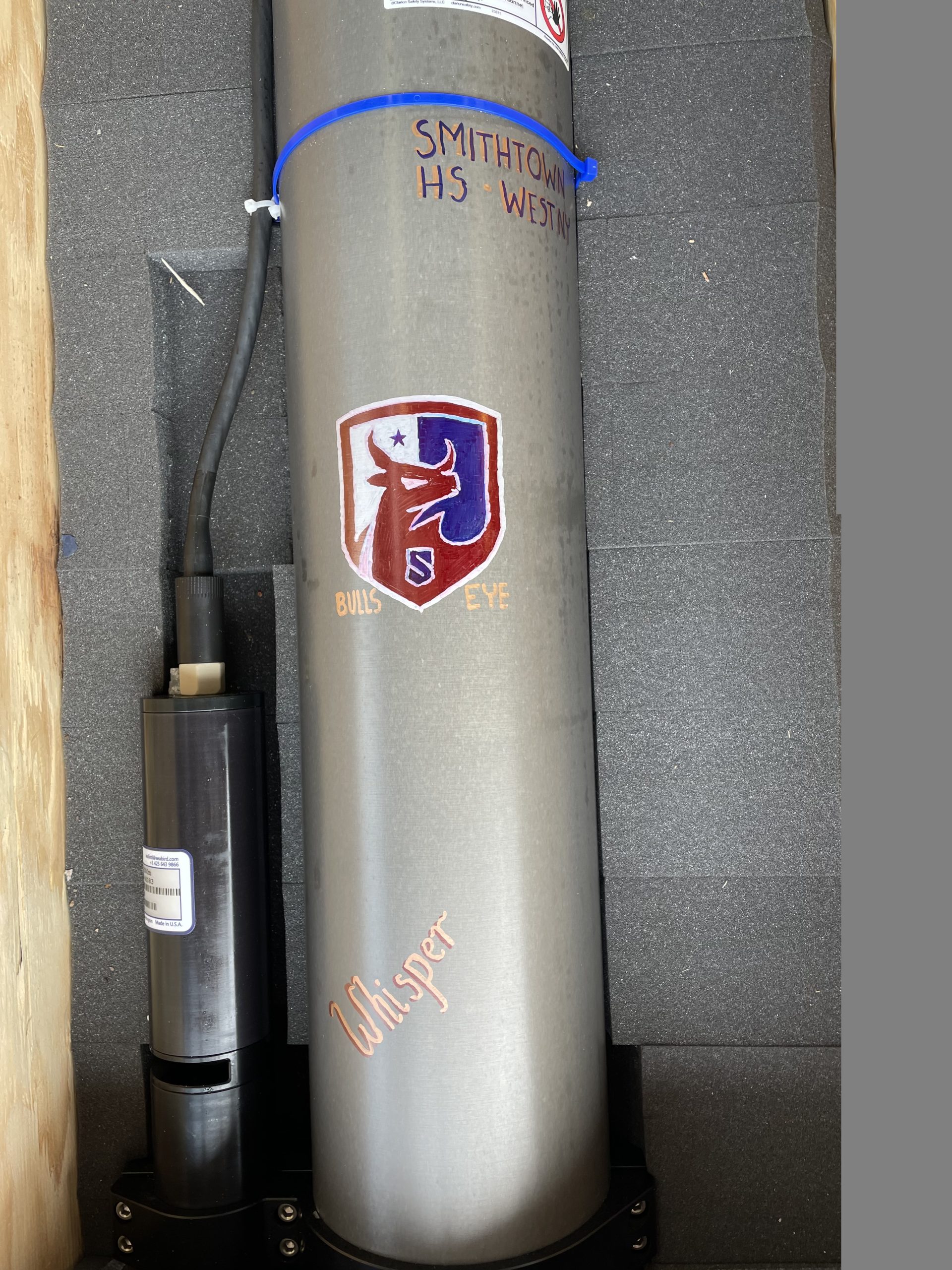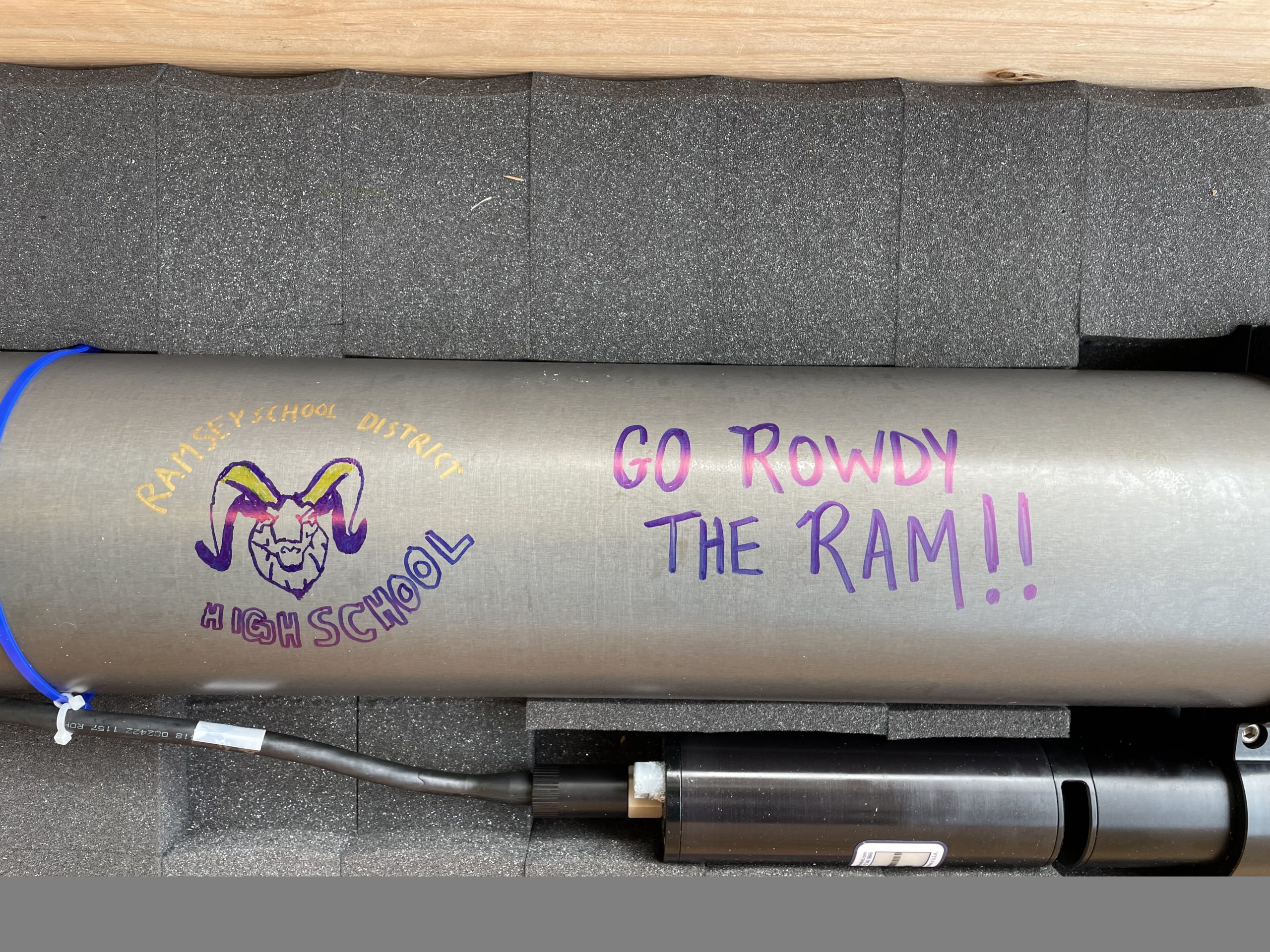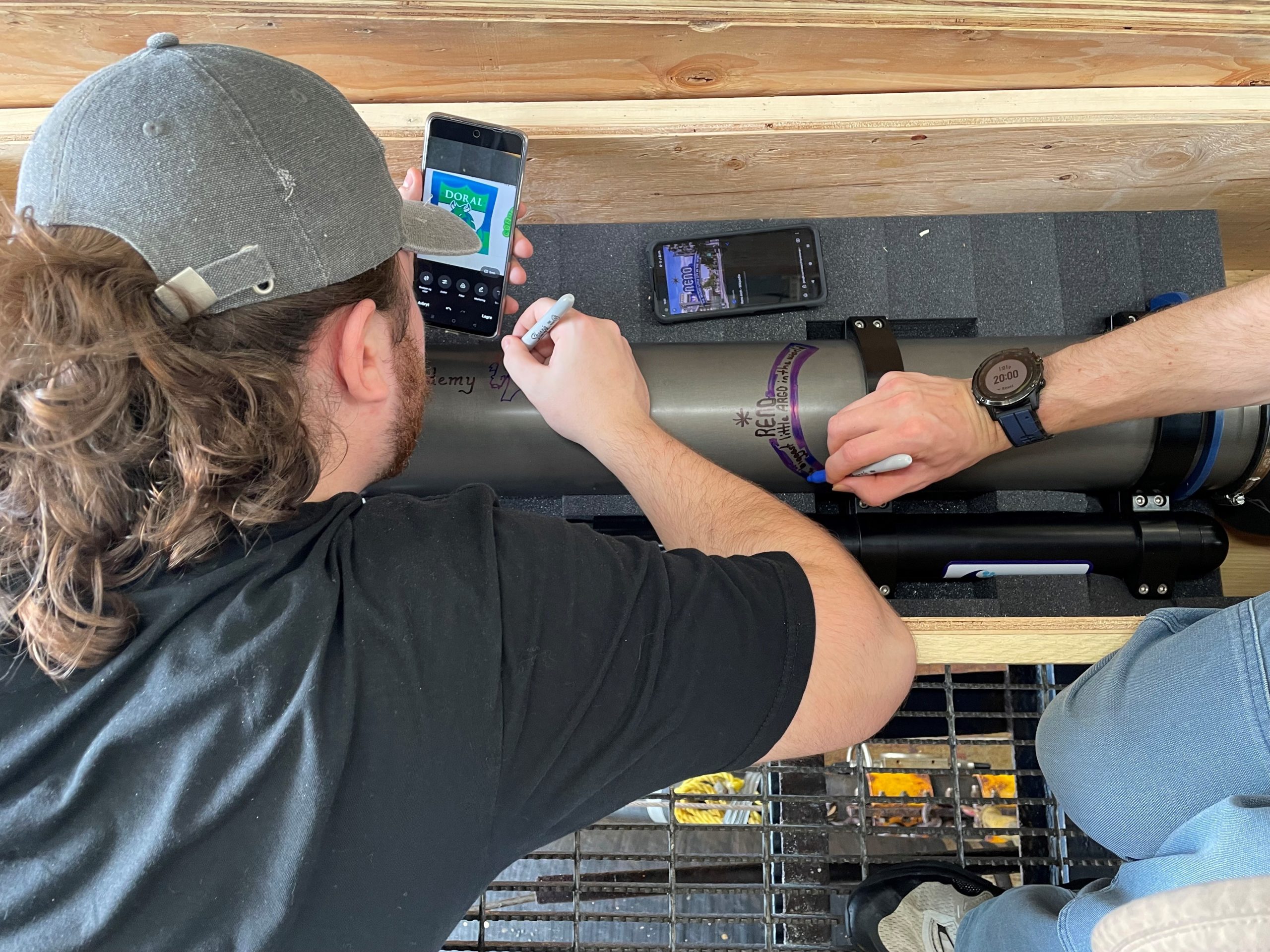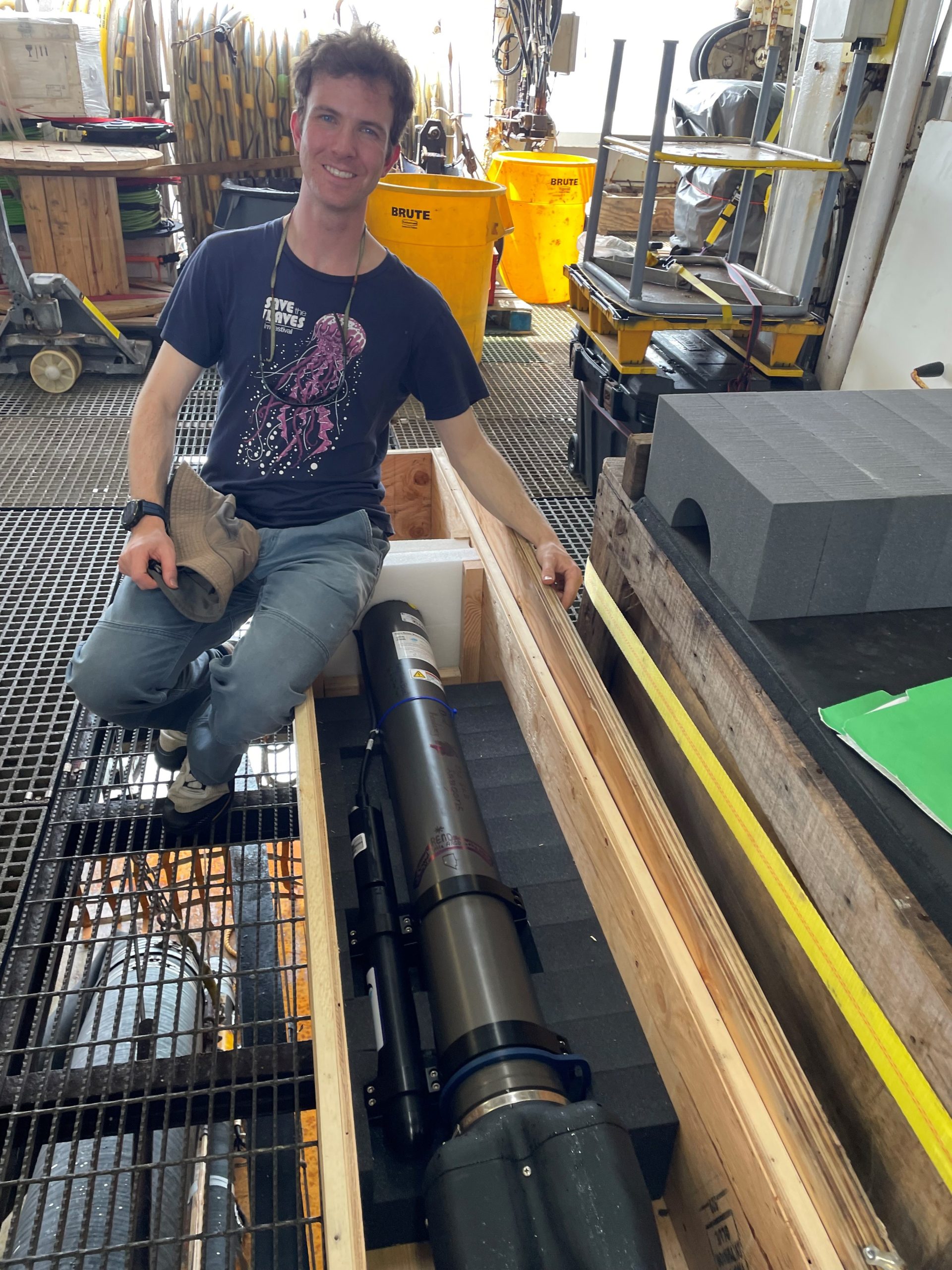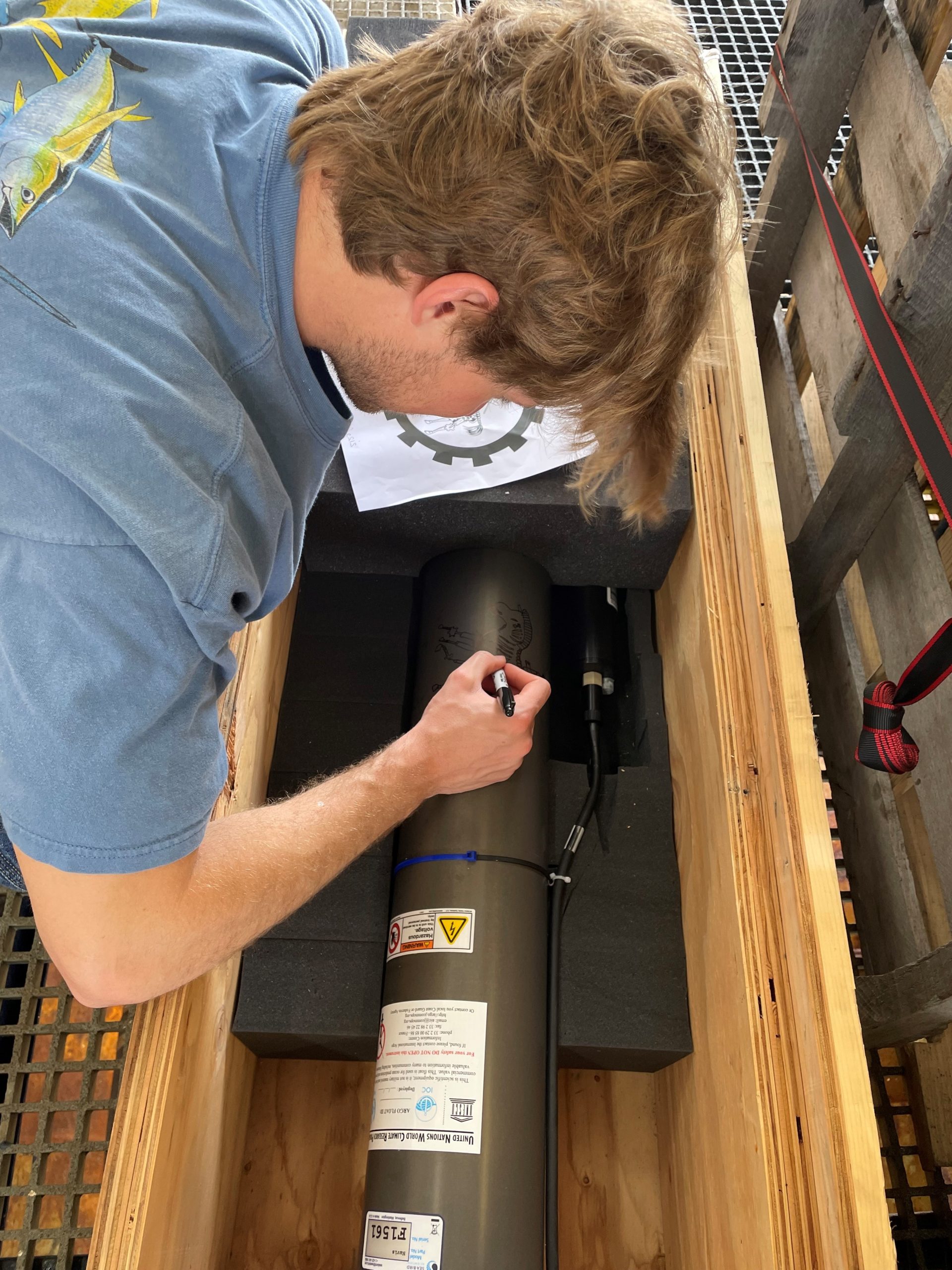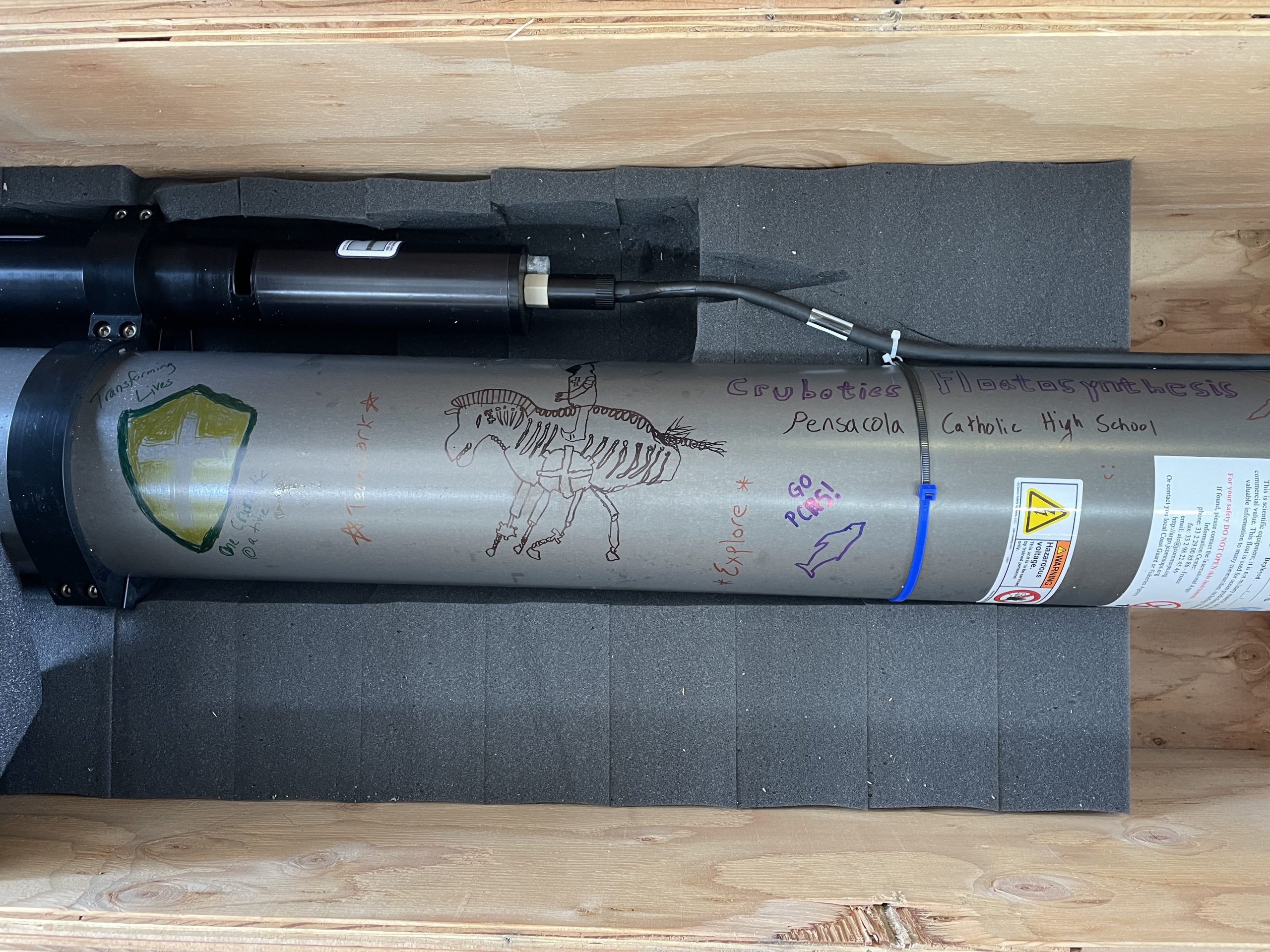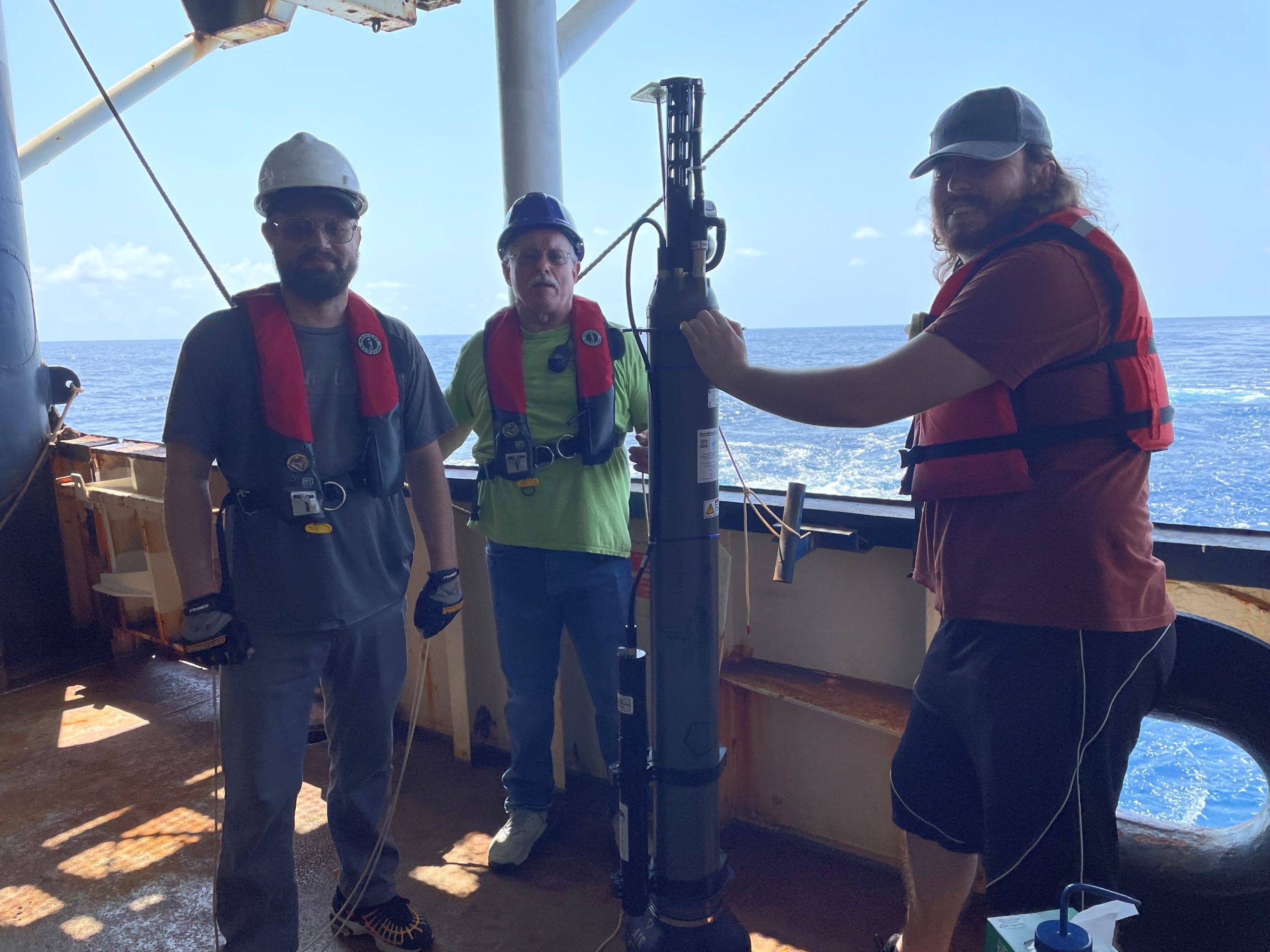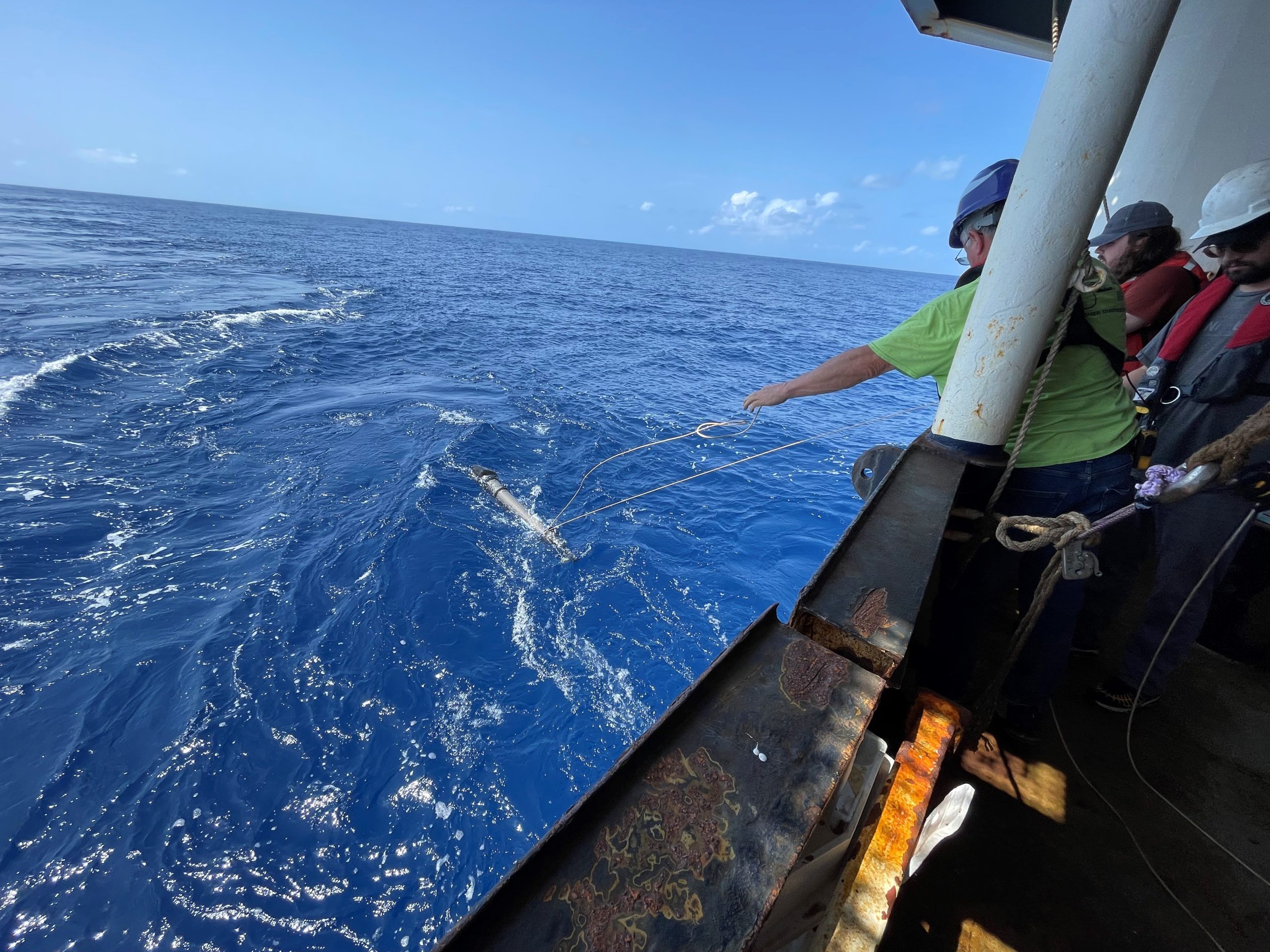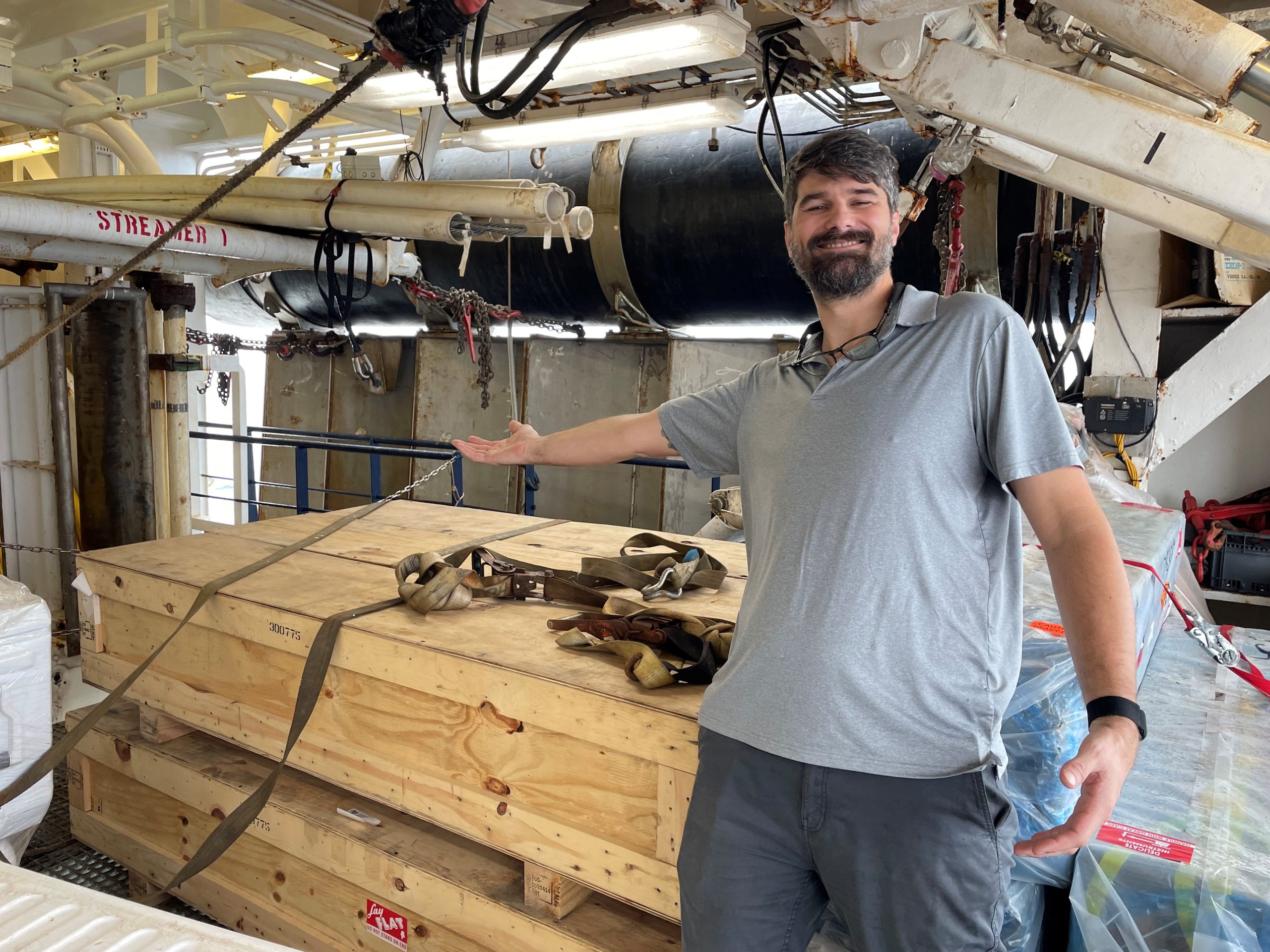GO-BGC Floats
18 February 2024
The Global Ocean Biogeochemistry Array (GO-BGC) connects their network of marine scientists and the research they are involved in with U.S. classrooms through their Adopt-a-Float outreach program. By accessing data from GO-BGC floats, schools can utilize the same information that scientists at weather, climate, and research centers around the world are using to better understand the way the ocean affects climate on an international scale.
Co-Chief Scientist Jesse Anderson, from Earth and Space Research (ESR), is coordinating deployment of over 40 robotic floats and drifters along the A13.5 transect. Among these are 11 GO-BGC Navis Argo floats from Woods Hole Oceanographic Institution (WHOI), all of which are adopted by schools across the United States.
GO-BGC profiling floats are battery powered autonomous robotic instruments designed to collect data related to the biogeochemical processes occurring in the ocean. Each float is equipped with chemical and biological sensors to measure various parameters such as temperature, salinity, pH, oxygen concentration, nitrate, and chlorophyll fluorescence (indicating phytoplankton abundance) in the water as they drift with the ocean currents below the surface and periodically dive down to 2000 m depths, collecting data on the ascent back to the surface, where they transmit data collected back to land. These data help scientists understand the ocean’s biogeochemical cycles, including documenting carbon uptake, acidification, deoxygenation, and ecosystem health.
Argo floats rely on the natural currents of the ocean for movement since they lack self-propulsion mechanisms. Nonetheless, they can regulate their buoyancy, enabling them to ascend and descend within the water column to collect data. Argo floats serve as the main source of subsurface temperature and salinity data in the ocean. Check out the diagram below to get an idea about how these amazing instruments work!
Navis Autonomous Profiling Float. (Sea Bird Scientific). https://www.seabird.com/eBooks/Profiling-Floats-Explained-Sea-Bird-Scientific
==============================================================================
Fun Fact: Argo floats were named after the renowned tale of Jason and the Argonauts from ancient Greek mythology. During their legendary journey, Jason and his crew sailed on a vessel named the Argo while on their infamous quest for the “golden fleece.” Argo teams up with the Jason Earth Observing Satellite [JASON-1], which measures the shape of the ocean surface. Their combined data monitor ocean currents, the ocean’s transport of heat, sea-level rise, and many more parameters related to the health of our ocean.
==============================================================================
The Argo floats on board the Langseth were adopted by ten U.S. schools. Student teams from each school named their floats and provided logos and designs to be added before deployment. These students will be following the paths their floats take as they move through the currents. The schools and the names of their floats are listed below:
- Alma Bryant High School, Irvington, AL: Hurricane Wilson and Bayou Bob-er
- Selma High School, Selma, AL: Saints Green Team
- Stanford Online High School, Redwood, CA: Sea Pixel
- Pensacola Catholic High School, Pensacola, FL: Crubotics Floatosynthesis
- Haysville Middle School, Haysville, KA: Hawks Float Nest
- Ramsey High School, Ramsey, NJ: Rowdy the Ram
- Doral Academy, Reno, NV: Sea Dragons
- Smithtown High School West, Smithtown, NY: Whisper
- APW Jr/Sr High School, Parish, NY: Banana Daisy is Rebel Ready
- Oak Harbor Intermediate, Oak Harbor, WA: Sea Panthers
Members of the A13.5 Science Team and Langseth crew are in the process of decorating the floats for each of the schools in preparation for deployment. Pictures of the floats that have been decorated to date along with their artists are below!
Max Pacatte, from the University of California-Santa Barbara, decorating the Stanford Online High School Argo Float.
Eva Jundt, pH measurement team member from Texas A&M University – Corpus Cristi, decorating the Oak Harbor Intermediate School Argo Float.
Anna Bruno, CFC analyst from the University of Washington, decorating the Smithtown High School West Argo Float.
Ramsey High School’s Rowdy the Ram decorated by Kristian Furnes and Langseth crew member Derek Johnson.
Daniel Sandborn, CTD Watchstander from the University of Minnesota – Duluth, displays the completed Sea Dragons float.
Pensacola Catholic High School Crubotics Floatosynthesis Argo float. Science team member Jenn Aicher and Langseth crew member Lindsay Daniels added to Evan Josza’s design work.
Check back for more pictures and details about these floats as we move along the transect! We have five more to decorate before they are deployed!
Teresa Kennedy, CTD Watchstander, 2/17/2024
University of Texas at Tyler; University of Rhode Island
All pictures by Teresa Kennedy (UT Tyler; URI) unless otherwise noted.

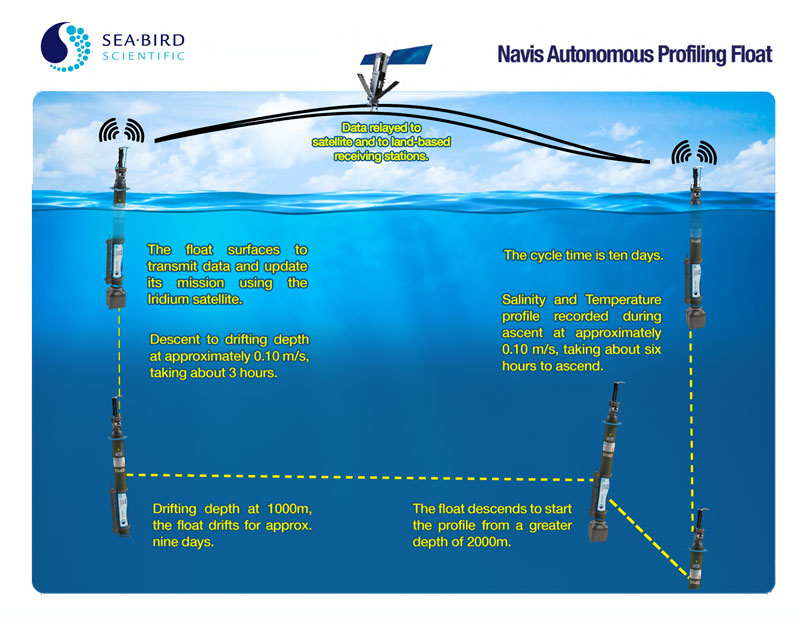
![PIC 3 Decorating Floats Science team members Evan Josza (UW), Yifan Li (UD), Max Pacatte (UCSB), Kristian Furnes (UiO), Teresa Kennedy (UT Tyler/URI), Anna Bruno (UW), and Eva Jundt (TAMU) begin decorating Argo floats. Picture by Jesse Anderson (ESR)]](https://www.go-bgc.org/wp-content/uploads/2024/02/PIC-3-decorating-floats.jpg)

